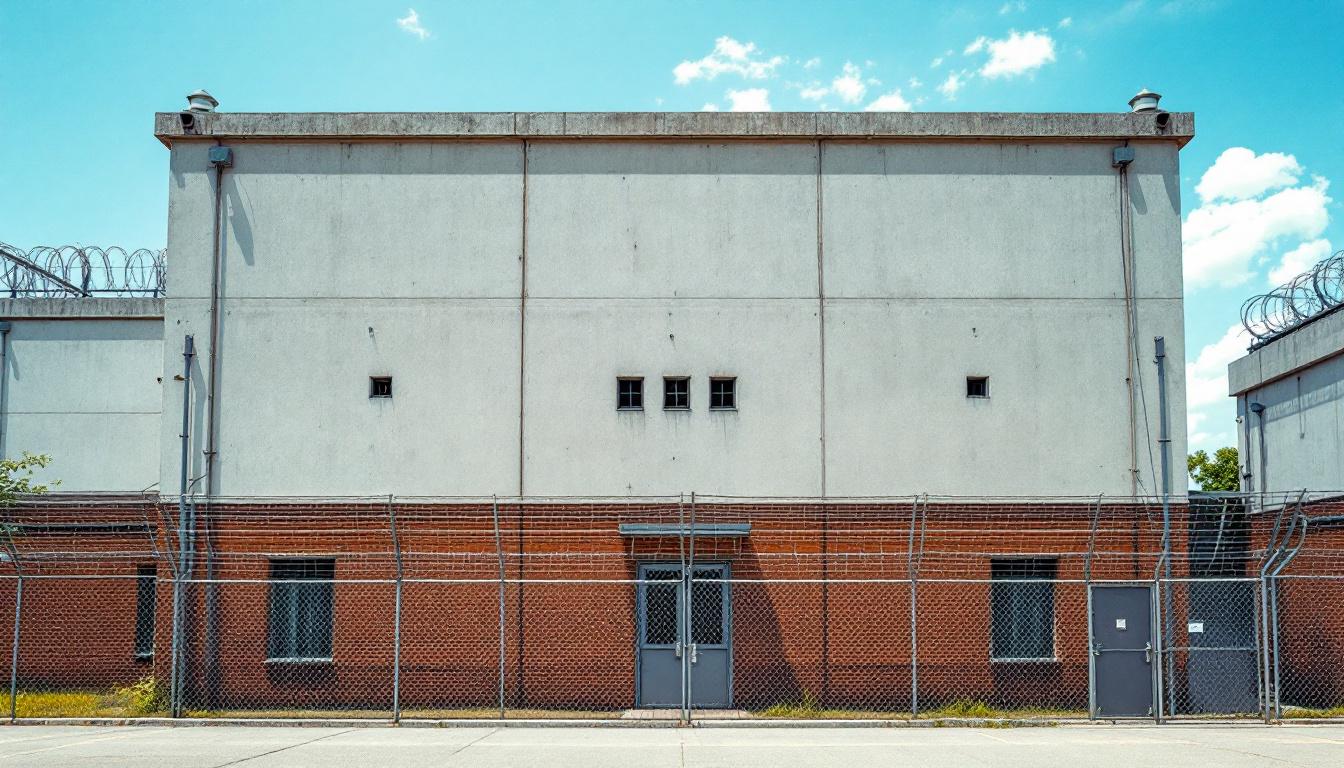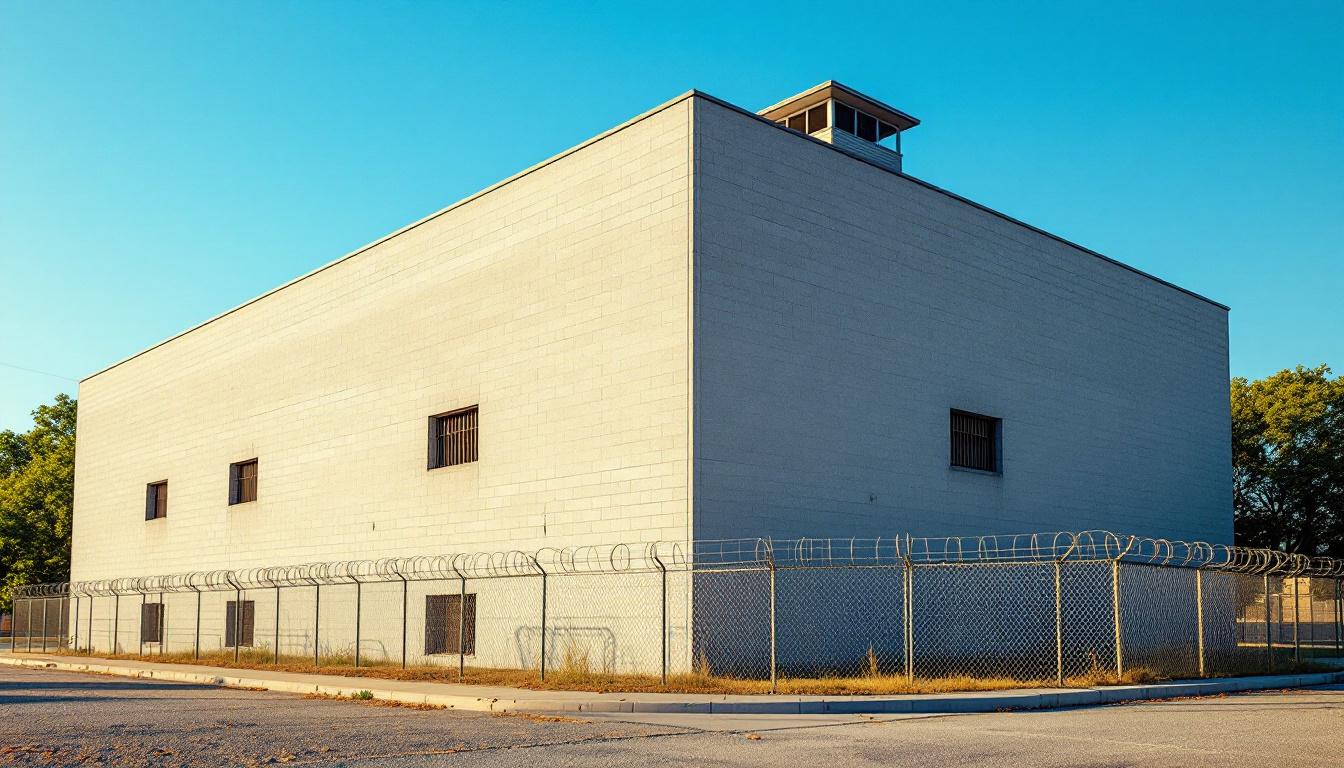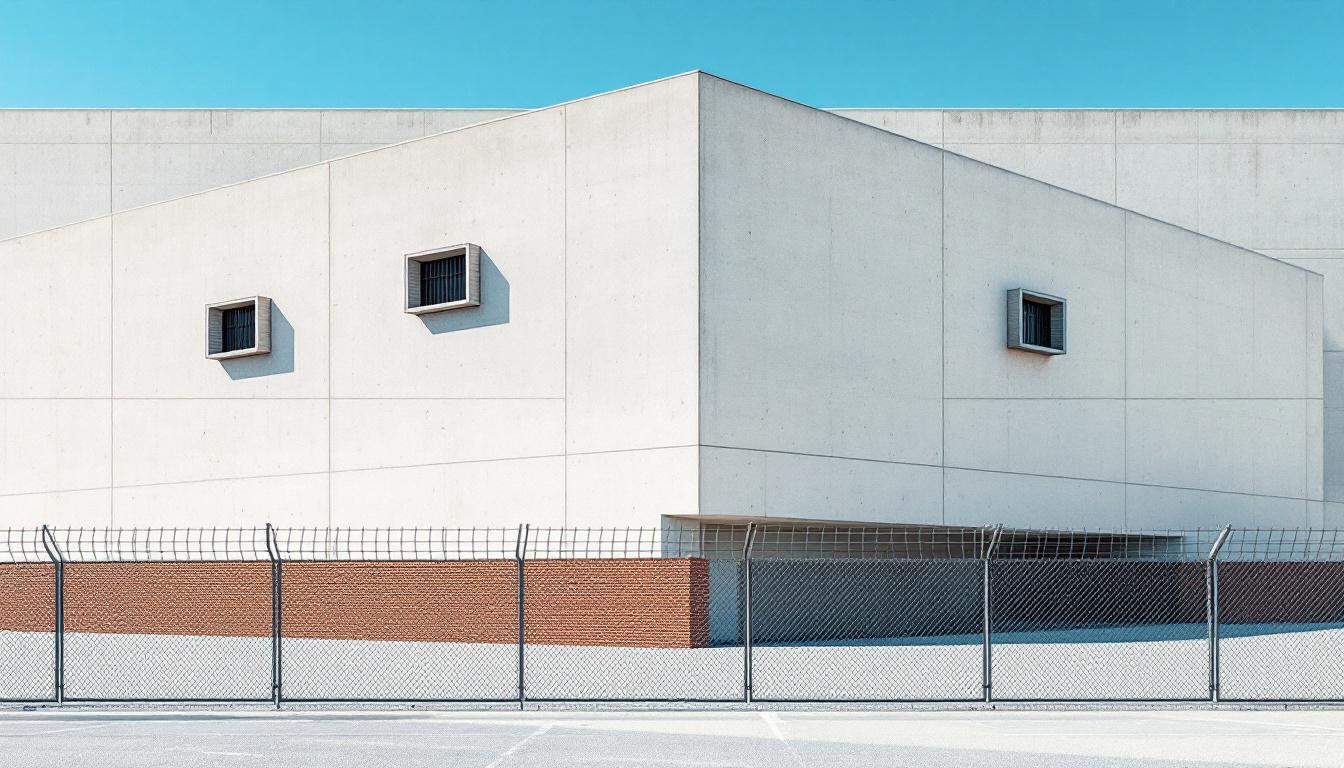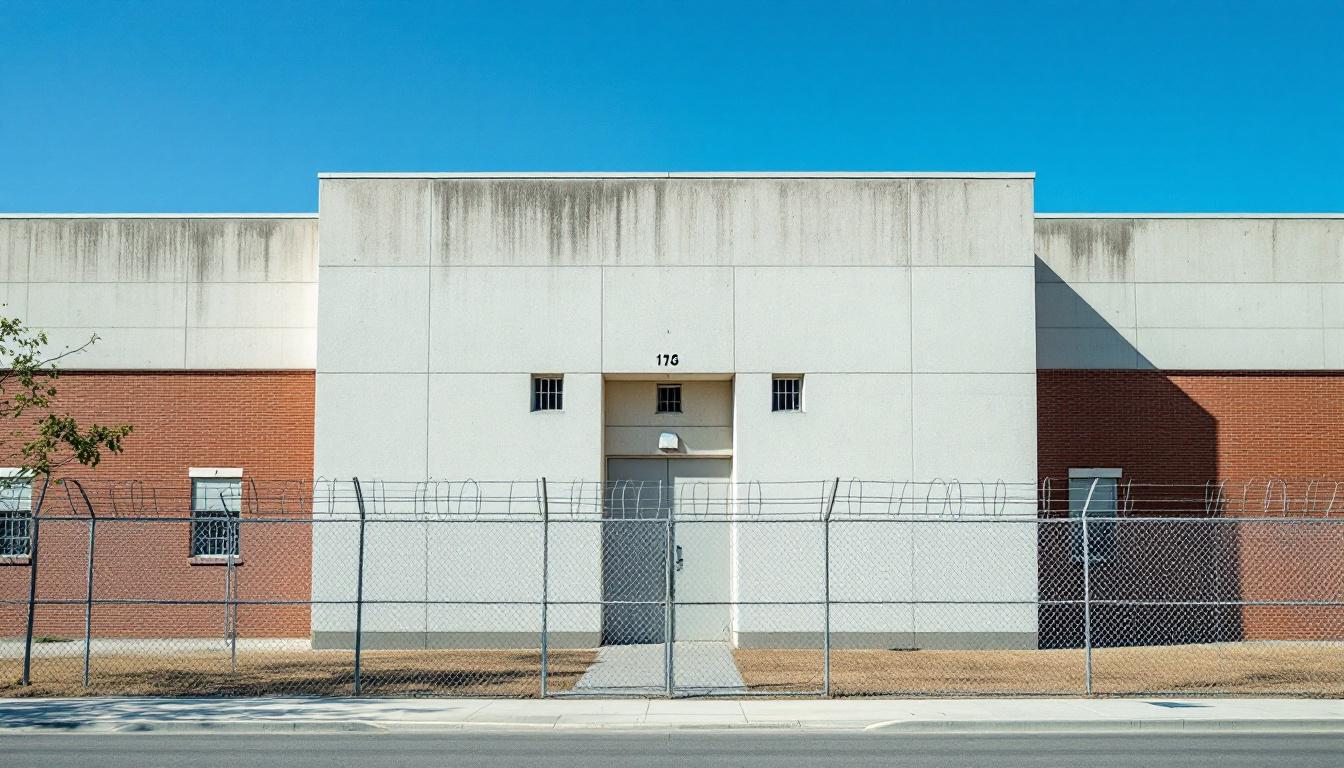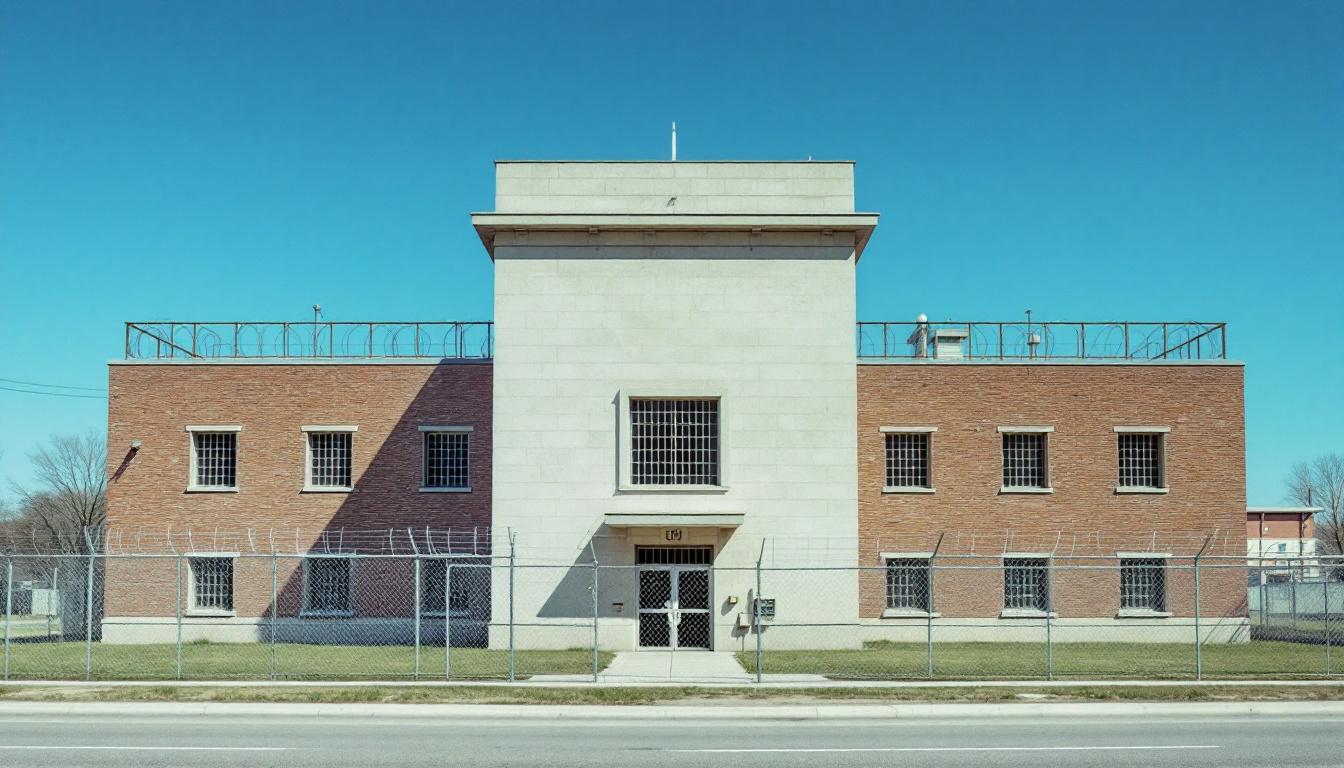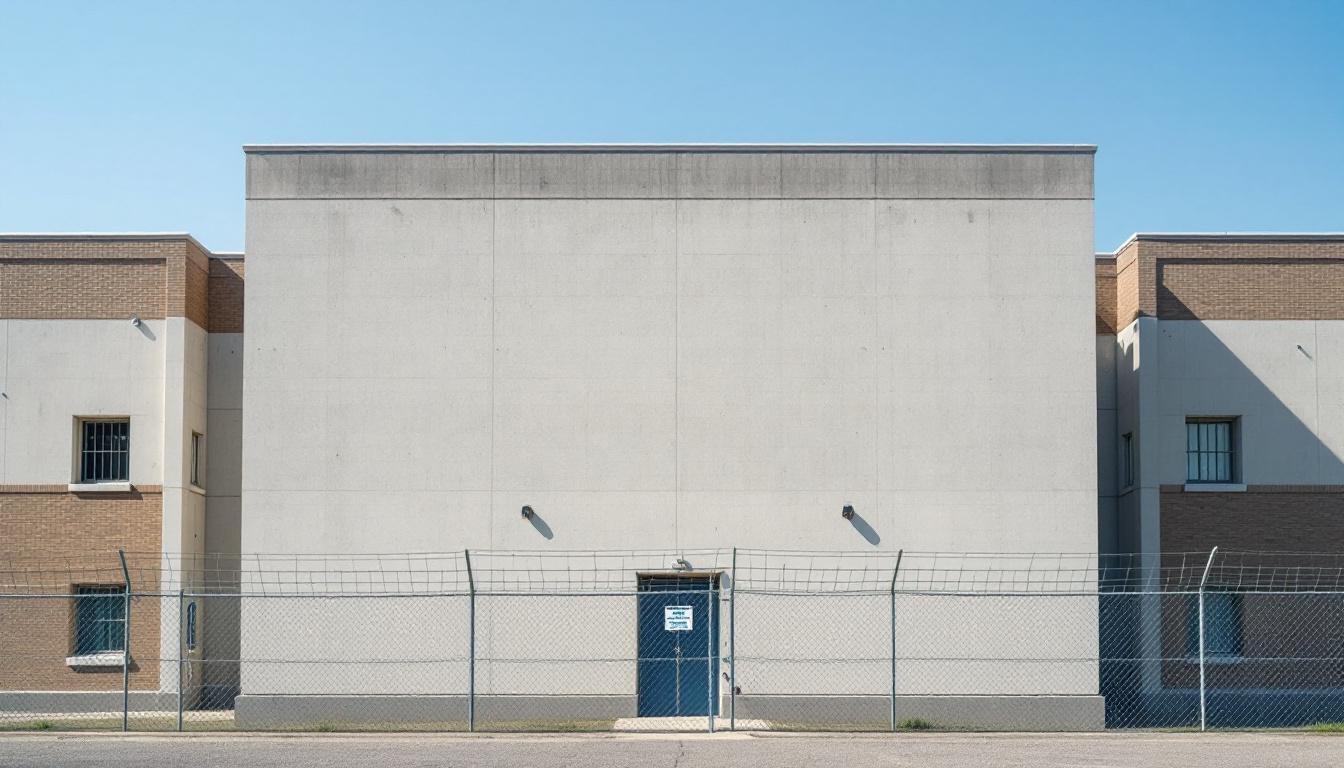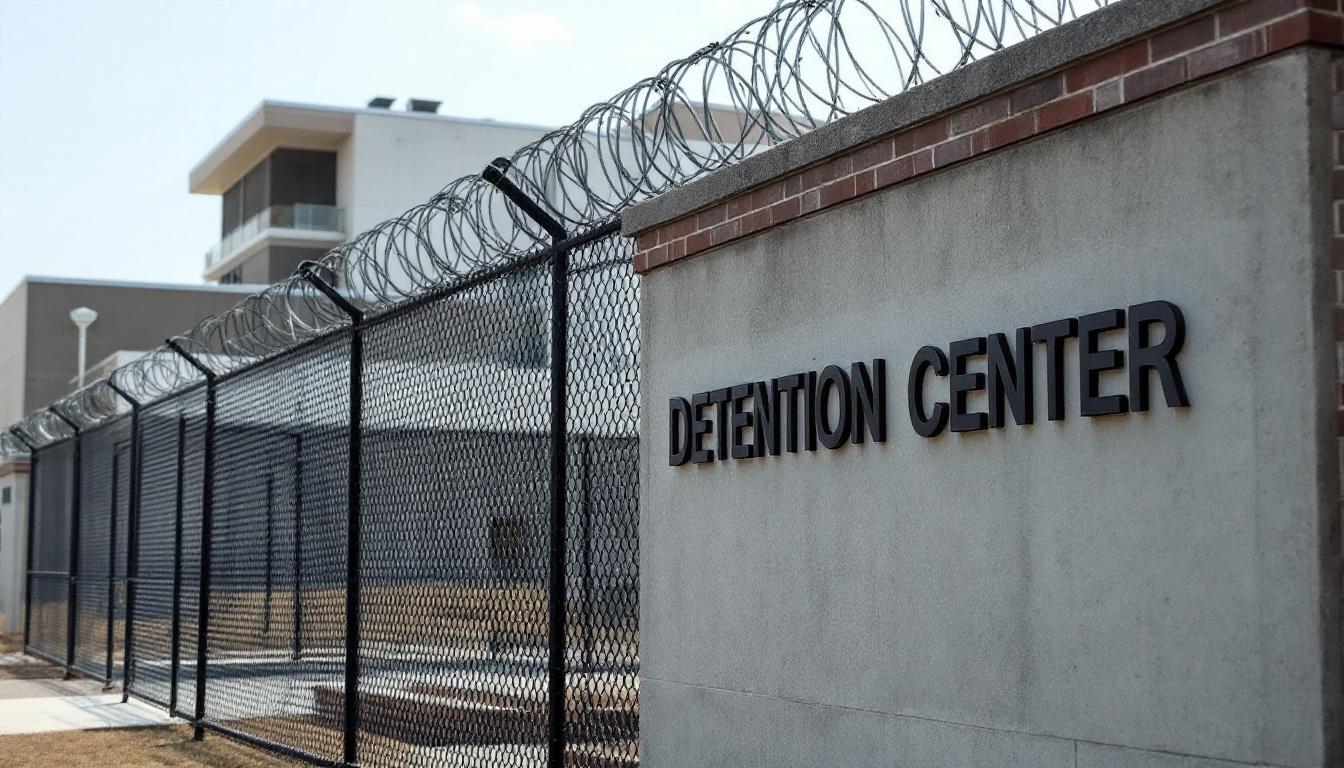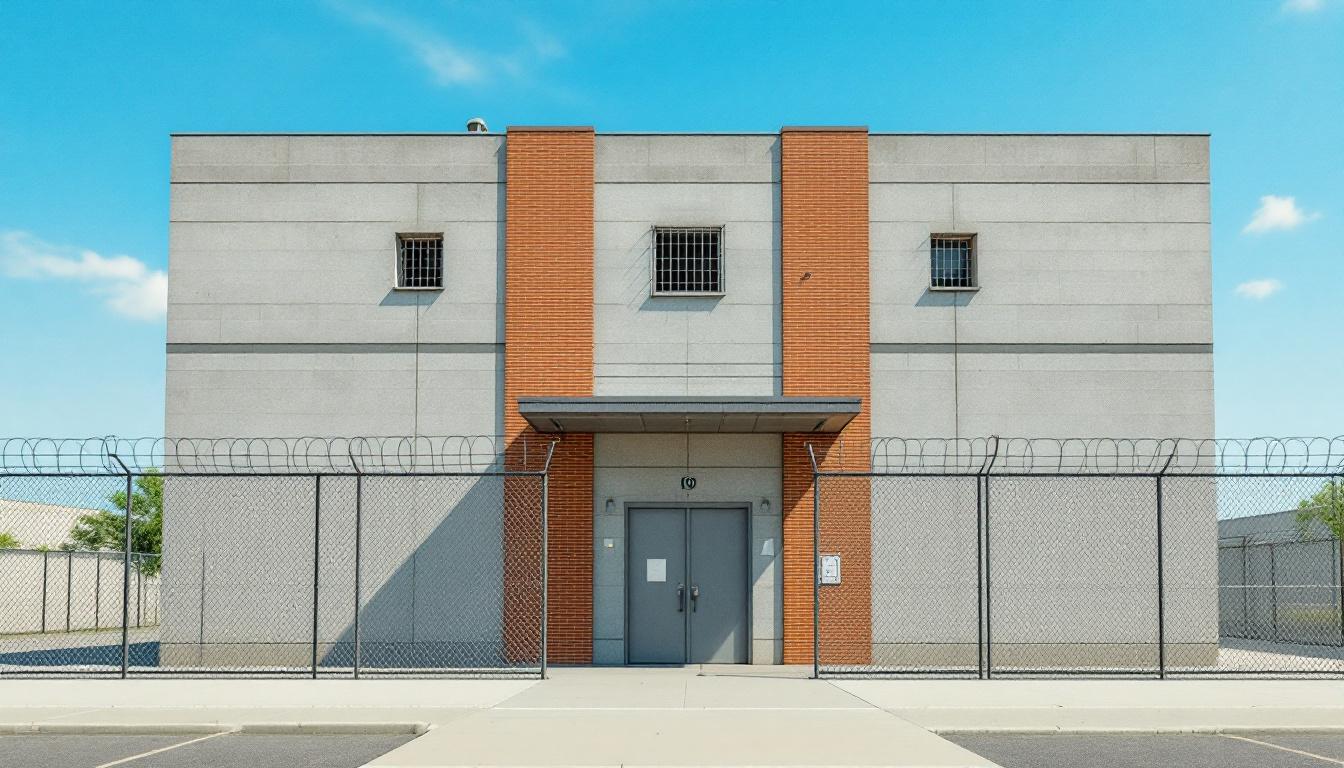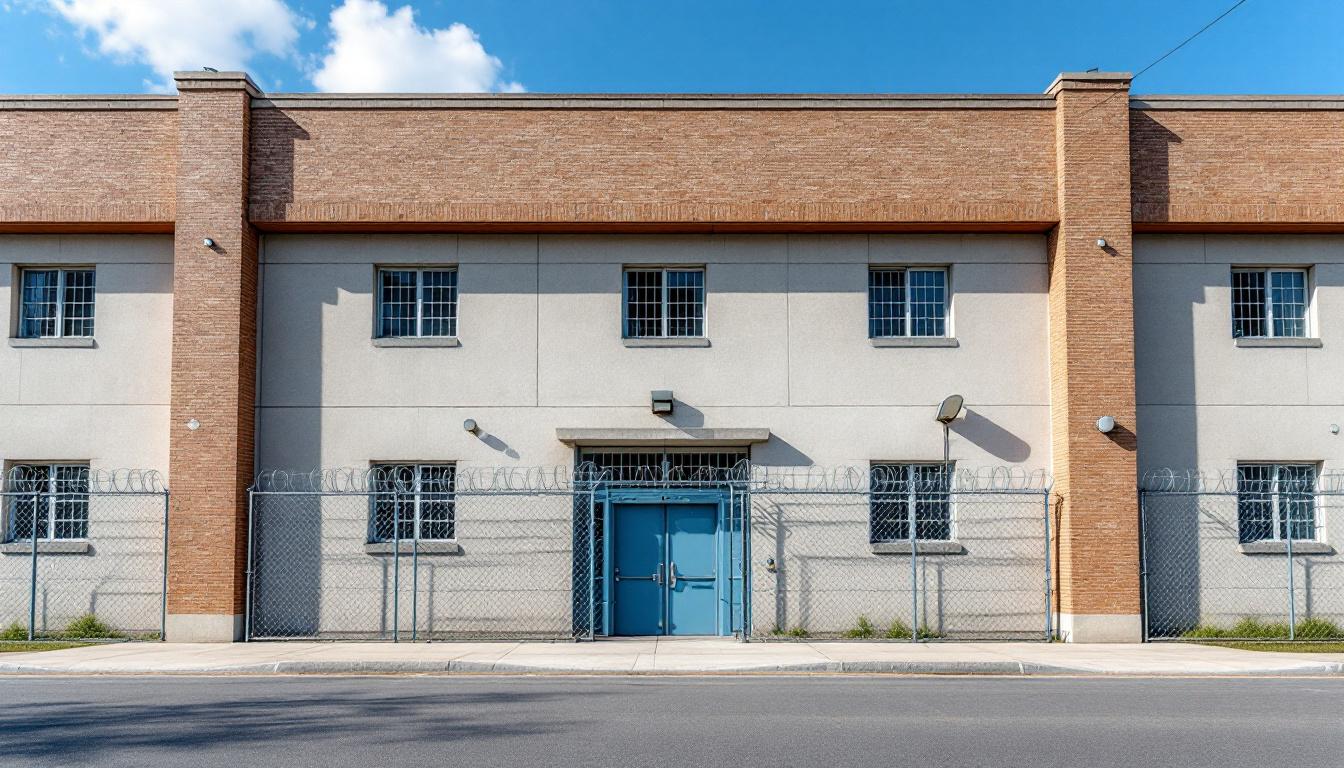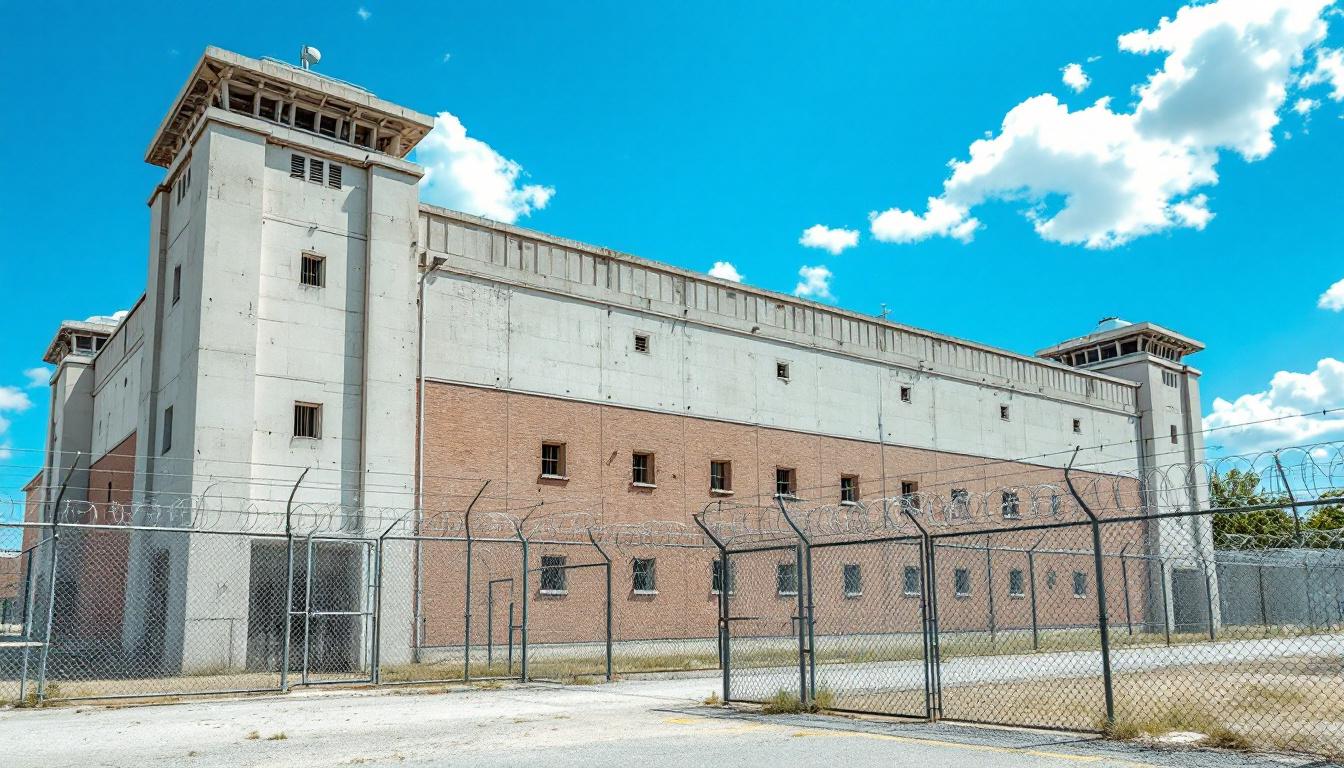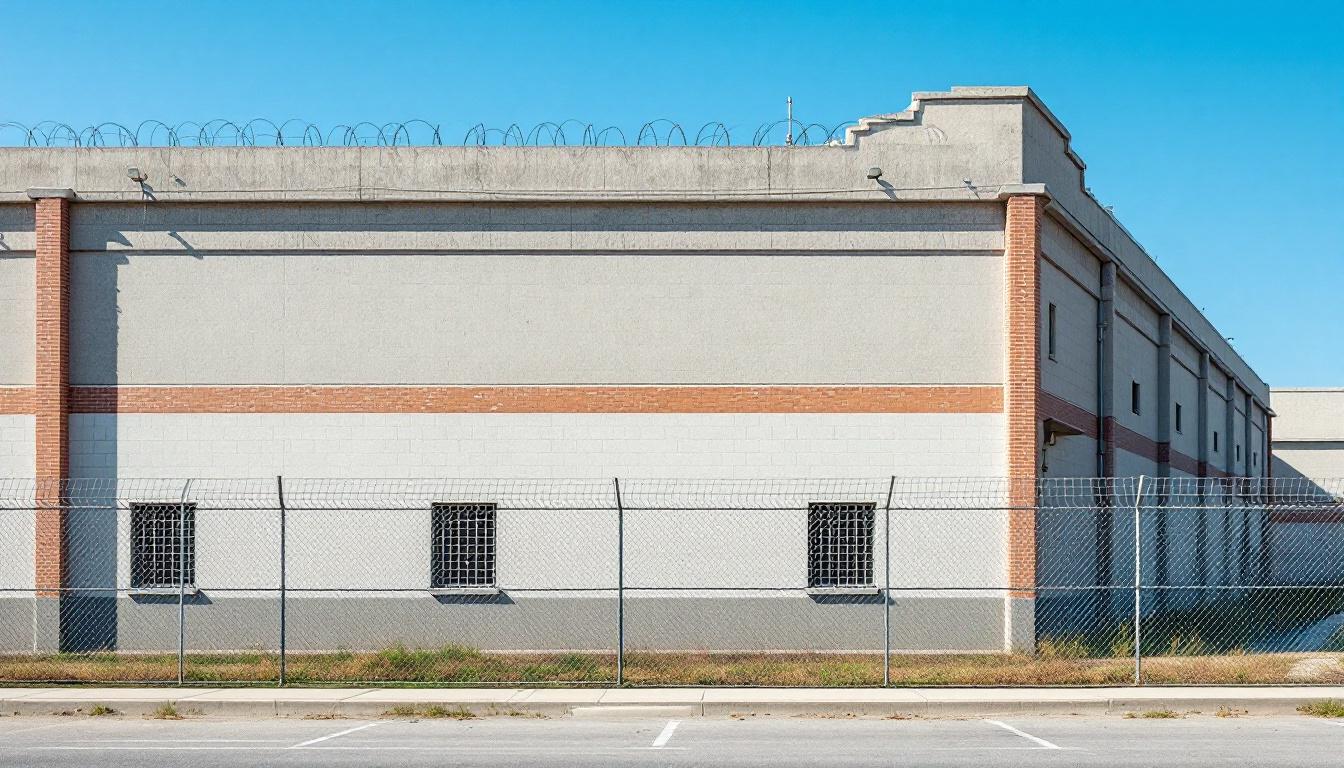
Quick Navigation
How to contact an inmate at Wake County Detention Center
This comprehensive guide will walk you through how to connect with an inmate at Wake County Detention Center. Follow the steps below to find an inmate and send letters and photos:
- Search for the inmate using our search tool below
- Create your account or log in to Penmate
- Write your message (up to 6,000 characters)
- Send instantly - inmates receive printed copies daily
Find an Inmate
Search for an inmate to start communicating today
Tip: You can search by first name, last name, or inmate ID number
To contact a person at Wake County Detention Center start by searching for the person on the official facility website. Perform a search by following these steps:
- Step 1: Enter their first name and last name into the search form and click "Search"
- Step 2: Locate their inmate record
- Step 3: Write down their Inmate ID and any housing information provided
Important! Be sure to enter the person's full name. Nicknames should not be used.
How to Send Messages to Inmates

You can use your phone or computer to send emails, letters, and photos to an inmate. Messages are sent electronically to inmate tablets or kiosks at the facility. If you would like to send a message, start by searching for an inmate at Wake County Detention Center.
Sending Photos and Postcards

A great way to send love and support to a loved one at Wake County Detention Center is to send photos and postcards. It only takes a few minutes to send photos from your phone and it makes a huge difference. You can also mail postcards with words of support and inspiration, or design your own postcard for special moments like birthdays and holidays.
Important! Be sure not to send any explicit photos or they may not be approved by the facility. You can also use a photo printing app like Penmate to make sure your photos are printed at the correct size (4x6 or 3x5) and are mailed according to the rules and regulations of Wake County Detention Center.
Frequently asked questions about Wake County Detention Center
-
How long does it take to deliver a message?
If you're sending an email message your letter is usually delivered within 24-48 hours. For messages sent via mail you should expect delivery within 3-7 days. All messages will need be approved by Wake County Detention Center.
-
How much does it cost to send a message to Wake County Detention Center?
You can send a message free using your phone or mail a message via USPS for the price of a $0.60 stamp and envelope. You can also purchase credits or e-stamps from services starting at $1.99.
-
What services can I use to contact an inmate at Wake County Detention Center?
Penmate
You can use Penmate to send letters and photos to an inmate from your phone. It's an easy way to stay in touch during your loved one's incarceration. Use the inmate locator to find an inmate's location and contact information, then you can send messages within a few minutes.
Securus messaging
Securus may be another option for communicating with an inmate at Wake County Detention Center. You can create a friends and family account and purchase credits to send messages. All messages will be reviewed and must be approved by the facility.
JPay
Some county jails and state prisons may support sending messages with JPay. You must register an account with the system, find your loved one, and purchase stamps to send messages. For some locations you can also attach photos.
Smart Jail Mail
You may also check if Smart Jail Mail is available at Wake County Detention Center. Smart Jail Mail is operated by Smart Communications and has contracted with some state and county jails. After purchasing credits, your messages and photos are sent to the facility, printed out, and then handed out to your loved one.
-
What is the mailing address of Wake County Detention Center?
Mailing address:
Wake County Detention Center
3301 Hammond Rd
Raleigh, NC 27610
Phone: (919) 773-7930Business hours:
- Monday: Open 24 hours
- Tuesday: Open 24 hours
- Wednesday: Open 24 hours
- Thursday: Open 24 hours
- Friday: Open 24 hours
- Saturday: Open 24 hours
- Sunday: Open 24 hours
-
What are the visiting hours at Wake County Detention Center?
Visiting hours at Wake County Detention Center vary by housing unit and security level. Generally, visits are scheduled on weekends and holidays, with some facilities offering weekday visits. Contact the facility directly at (919) 773-7930 or check their website for the current visiting schedule. Visits typically last 30-60 minutes and must be scheduled in advance.
-
What items are prohibited when sending mail to Wake County Detention Center?
Prohibited items typically include: cash, personal checks, stamps, stickers, glitter, glue, tape, staples, paperclips, polaroid photos, musical or blank greeting cards, hardcover books, magazines with staples, and any items containing metal or electronics. Only send letters on plain white paper with blue or black ink. Photos must be printed on regular photo paper (no Polaroids). Always check with Wake County Detention Center for their specific mail policies.
-
How do I send money to an inmate at Wake County Detention Center?
You can send money to an inmate at Wake County Detention Center through several methods: 1) Online using JPay, Access Corrections, or the facility's approved vendor, 2) Money orders mailed directly to the facility with the inmate's name and ID number, 3) Kiosks located in the facility lobby, or 4) Over the phone using a credit or debit card. Fees vary by method, typically ranging from $2.95 to $11.95 per transaction.
-
Can I schedule a video visit with an inmate at Wake County Detention Center?
Many facilities now offer video visitation as an alternative to in-person visits. At Wake County Detention Center, video visits may be available through services like Penmate, Securus Video Connect, GTL, or ICSolutions. Video visits typically cost $10-20 for 20-30 minutes and must be scheduled in advance. You'll need a computer or smartphone with a camera and reliable internet connection. Contact the facility for their specific video visitation policies and approved vendors.
-
What identification do I need to visit an inmate at Wake County Detention Center?
All visitors must present valid government-issued photo identification such as a driver's license, state ID, passport, or military ID. Minors must be accompanied by a parent or legal guardian who can provide the minor's birth certificate. Some facilities require visitors to be on the inmate's approved visitation list, which may require a background check. Contact Wake County Detention Center for specific ID requirements and visitor approval procedures.
-
How can I find out an inmate's release date?
To find an inmate's release date at Wake County Detention Center, you can: 1) Use the online inmate search tool if available, 2) Call the facility's records department, 3) Contact the inmate's case manager or counselor, or 4) Have the inmate provide this information during a call or visit. For privacy reasons, some facilities only release this information to immediate family members.
Facility Overview
Contact Information
Wake County Detention Center3301 Hammond Rd
Raleigh, NC 27610
Phone: (919) 773-7930
Official Website

About Wake County Detention Center
Located in Wake County, North Carolina, this detention facility operates under the oversight of the Wake County Sheriff’s Office and serves the correctional needs of the surrounding community. The facility has implemented modern communication systems to help maintain connections between inmates and their families, with personal correspondence now delivered digitally through tablet technology. While packages and legal mail continue to be processed through traditional channels, letters, pictures, and drawings are transmitted electronically to support ongoing family relationships during incarceration.
The detention center’s mail processing system reflects contemporary approaches to correctional communication, with all personal correspondence routed through a centralized facility in Phoenix, Maryland before digital delivery. This streamlined process typically supports both security protocols and efficient message delivery. The facility also provides access to the GettingOut platform, which enables inmates and their contacts to exchange digital messages through online services and mobile applications, offering multiple communication options that may help reduce isolation during detention.
Wake County Detention Center generally provides the standard array of services found in modern correctional facilities, which often includes educational programming, vocational training opportunities, and rehabilitation services designed to support successful reentry into the community. The facility’s integration of digital communication technology suggests a broader commitment to maintaining family connections, which correctional research typically identifies as an important factor in reducing recidivism and supporting positive outcomes for individuals in custody.
Programs & Services
Communication with family and friends plays a vital role in supporting individuals during their time at Wake County Detention Center. The facility has implemented a digital mail system that delivers personal correspondence, including letters, pictures, and drawings, directly to residents through tablets. This modern approach to inmate correspondence allows for more efficient delivery while maintaining important connections with loved ones. Families can also utilize quick digital messaging services through online platforms or the GettingOut mobile app, providing multiple ways to stay in touch throughout the incarceration period.
Beyond communication services, Wake County Detention Center may offer various educational and rehabilitative programs typical of North Carolina correctional facilities. These often include basic literacy and GED preparation classes, vocational training opportunities, and substance abuse counseling programs. Mental health services and religious programming are commonly available to support residents’ emotional and spiritual well-being during their stay.
The facility typically provides access to medical care, recreational activities, and library services as part of its comprehensive approach to detention operations. Work programs may be available for eligible residents, allowing them to develop job skills while contributing to facility operations. Legal assistance resources and pre-release planning services often help prepare individuals for successful reintegration into the community upon completion of their sentence.
Daily Life & Visitation
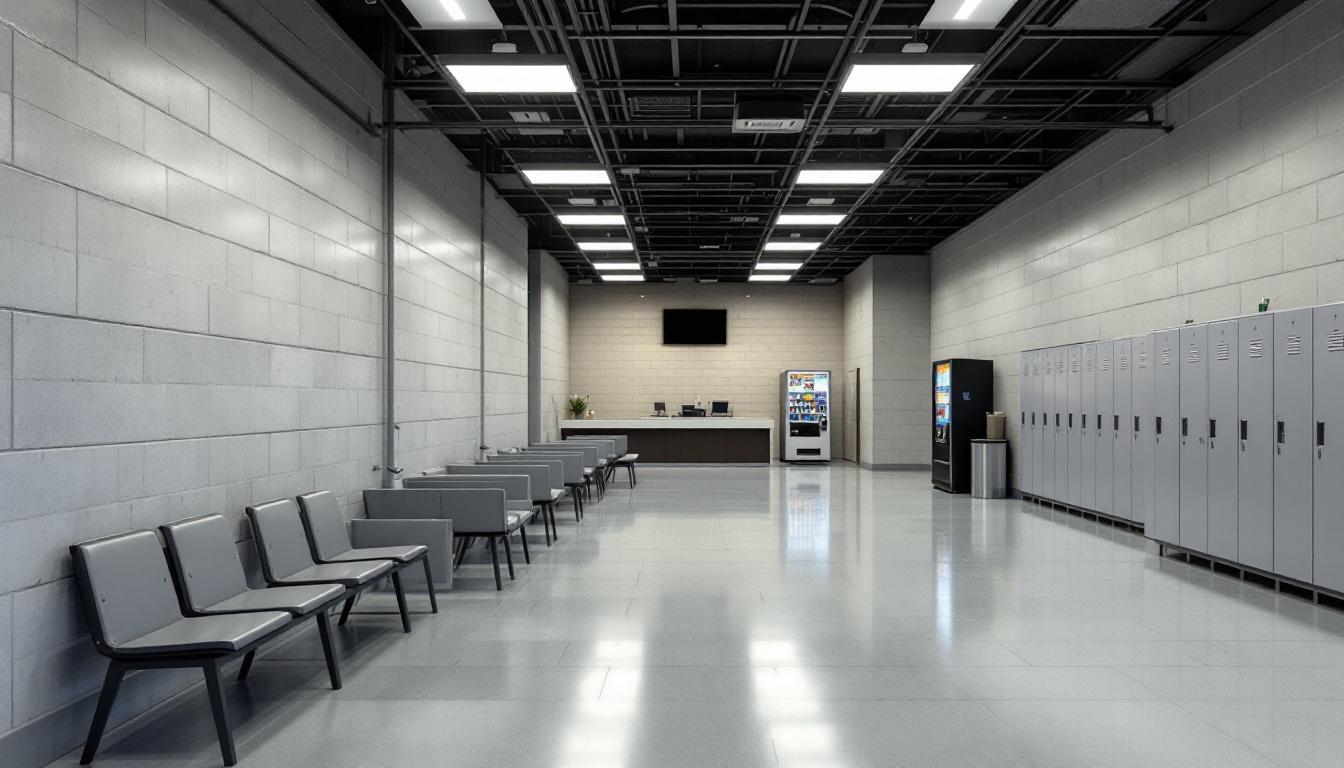
Communication with loved ones forms a central part of the experience for those housed at Wake County Detention Center, with the facility utilizing modern digital systems to facilitate contact. Personal correspondence including letters, pictures, and drawings are now delivered digitally through tablets, streamlining the process for both inmates and their families. Those wishing to send mail must address correspondence to a processing center in Phoenix, Maryland, ensuring they include the full facility name, the inmate’s comprehensive identifier, and complete sender information for proper delivery.
The facility typically operates on structured daily schedules that may include designated times for meals, recreation, educational programming, and work assignments. Inmates often have access to common areas during specified hours, where they might participate in recreational activities or utilize services that could include library resources or religious programming. The digital communication system allows for quick messaging through the GettingOut platform, enabling families to maintain regular contact through both online services and mobile applications.
Wake County Detention Center generally provides basic necessities including meals, medical care, and housing accommodations that meet state standards for correctional facilities. Legal mail continues to be processed through traditional channels directly to the facility, ensuring attorney-client communications remain secure. The facility’s operations typically emphasize both security protocols and maintaining connections between inmates and their support networks, recognizing the importance of family contact during incarceration.
Ready to Connect?
Start communicating with your loved one today
Search for an Inmate
